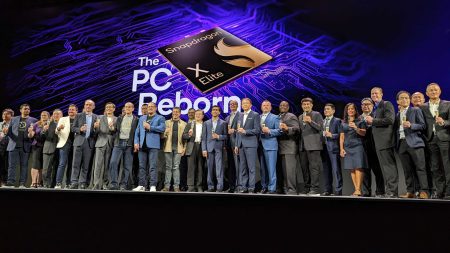The Biden administration has unveiled a significant new initiative to protect U.S. national security by addressing the risks posed by connected vehicle technologies originating from China and Russia. In an announcement, the Department of Commerce issued a Notice of Proposed Rulemaking (NPRM) that aims to ban the import and sale of connected vehicles and related components designed or manufactured by entities linked to these nations.
This NPRM specifically targets Vehicle Connectivity Systems (VCS) and Automated Driving Systems (ADS). These technologies, including Bluetooth, satellite, cellular, and Wi-Fi modules, allow vehicles to connect with external networks and, in the case of ADS, operate autonomously. The administration’s concern stems from the potential for these systems to be exploited for surveillance, data collection, and infrastructure disruption by foreign actors, particularly those from China and Russia.
Addressing U.S. National Security Threats
The Biden-Harris administration has emphasized the increasing vulnerability posed by the rising sophistication of connected vehicles. While such vehicles offer convenience, enhanced safety features, and autonomous driving capabilities, they also introduce new security risks.
The integrated computer systems in these cars collect sensitive data, from the movement of vehicles to detailed information about passengers and critical U.S. infrastructure. This vast connectivity, tied into the nation’s digital networks, is seen as a potential avenue for foreign adversaries to exploit.
Cars today have cameras, microphones, GPS tracking, and other technologies connected to the internet. It doesn’t take much imagination to understand how a foreign adversary with access to this information could pose a serious risk to both our national security and the privacy of U.S. citizens,†stated U.S. Secretary of Commerce Gina Raimondo. The proposed rule, she explained, is a proactive step to mitigate this emerging threat.
Details of the Proposed Rule
The proposed rule would prohibit the import or sale of vehicles that incorporate VCS or ADS technologies designed, developed, or supplied by entities with a connection to China or Russia. Specifically, the ban covers VCS systems, which include telematics control units, Bluetooth modules, and cellular and satellite components, among others, and ADS systems that enable autonomous vehicle operations without a human driver.
The rule also extends to components manufactured by entities with ties to these nations, regardless of whether the vehicle itself was made in the U.S. This broad prohibition reflects the administration’s commitment to closing loopholes and ensuring that U.S. automotive supply chains remain free of foreign technology that could pose a security risk.
Implementation Timeline
The restrictions outlined in the NPRM could take effect over the coming years. Software restrictions would begin with vehicles of the 2027 model year, while hardware prohibitions would be implemented for the 2030 model year, or as early as January 2029 for vehicles without a specific model year.
To mitigate unintended disruptions, the rule also proposes procedures to allow certain parties, such as small vehicle manufacturers, to apply for exemptions in exceptional circumstances.
Building on Previous Efforts
Today’s announcement is the latest in a series of actions by the Biden administration aimed at safeguarding the U.S. automotive industry and national security. In February 2024, the administration launched the process leading to today’s NPRM, seeking public feedback on the risks associated with connected vehicle technologies. This NPRM reflects the incorporation of that feedback and represents a significant next step in the administration’s broader strategy to fortify critical U.S. infrastructure.
Earlier this year, President Biden also increased tariffs on Chinese electric vehicles from 25% to 100%, a move designed to give U.S. automakers a competitive edge in the growing EV market. Additionally, the Inflation Reduction Act tied the eligibility for a $7,500 electric vehicle tax credit to final assembly in North America and the sourcing of key battery minerals and components from the U.S. or trade partners.
These measures collectively highlight the administration’s commitment to ensuring that U.S. automakers can innovate and lead the global market while reducing reliance on foreign suppliers that may compromise national security.
Concerns from Industry and Stakeholders
The NPRM invites further public comment from all stakeholders, including industry players, consumer advocates, and national security experts. The Department of Commerce has emphasized that it will continue to engage with industry leaders, U.S. allies, and other interested parties to refine the rule and ensure that it achieves the desired security outcomes without causing unintended disruptions to the automotive sector.
“Our goal is always to safeguard our national security,†said Alan F. Estevez, Under Secretary of Commerce for Industry and Security. “This rule marks a critical step forward in protecting America’s technology supply chains from foreign threats and ensures that connected vehicle technologies are secure from potential exploitation.â€
Looking Ahead
As the rulemaking process continues, the Biden administration remains committed to addressing the challenges posed by foreign adversaries in the automotive supply chain. National Security Advisor Jake Sullivan highlighted the administration’s focus on maintaining secure and resilient supply chains, stating, “We will continue to take necessary steps to mitigate these risks and get out ahead of the problem.â€
The proposed rule, while still in the public comment phase, reflects the administration’s broader national security strategy. By targeting connected vehicle technologies from countries of concern, particularly China and Russia, the administration is sending a clear message that the U.S. will take decisive action to protect its critical infrastructure and ensure the safety of its citizens.
Source: Read More

